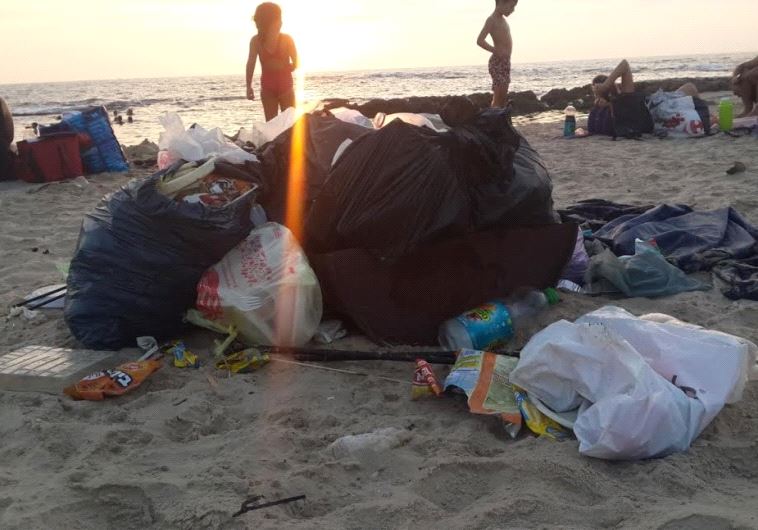Israel’s beaches awash in plastic bags
On Thursday, the ministry stressed that "the responsibility for cleaning up beaches is in the hands of the local authorities."
 Litter on Mikhmoret Beach near Hadera.(photo credit: ENVIRONMENT PROTECTION MINISTRY)Updated:
Litter on Mikhmoret Beach near Hadera.(photo credit: ENVIRONMENT PROTECTION MINISTRY)Updated: